Long before shopping centers, groceries stores, or other forms of modern conveniences were established in Appalachian Ohio, thousands of people utilized the land around them to survive. Now, with so many modern amenities, these traditions are slowly fading. However, they are not completely gone. Talcon Quinn, an Appalachian folk artist whose family has lived in the Athens area for eight generations, has been working to reintroduce locals to the valuable resources that surround them.
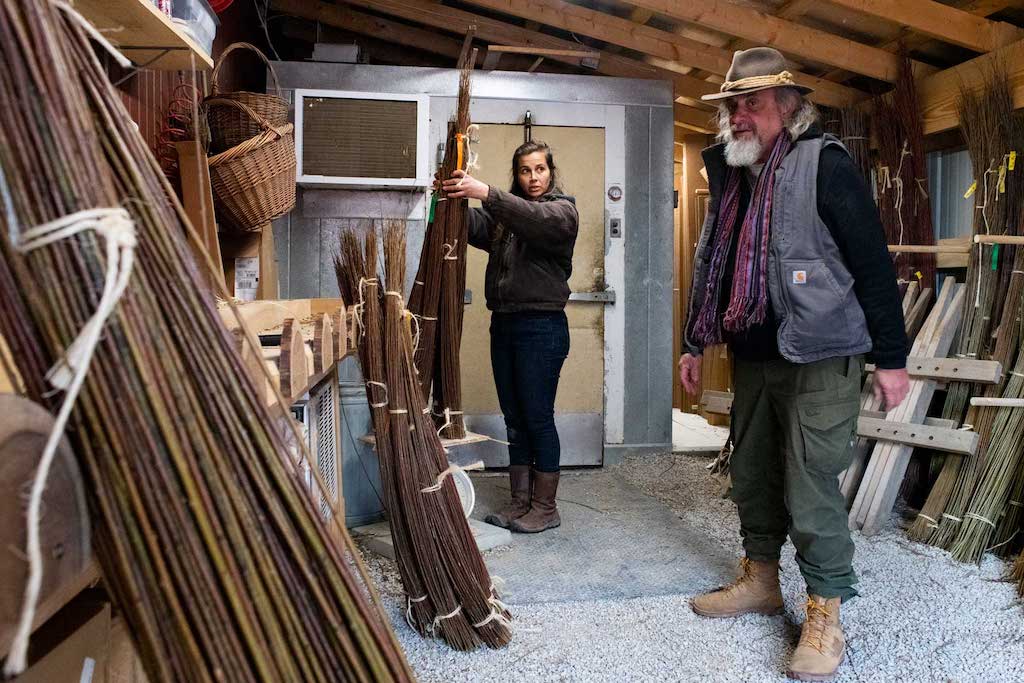
Quinn specializes in a variety of traditional crafting processes.
“I use the term Appalachian folk artist because it encompasses a lot of the different mediums I work with,” she says. During her time as an Appalachian folk artist, Quinn has developed a skill set for working with all kinds of natural resources in the area.
“My main source of income comes from selling jewelry…I also weave baskets, using traditional skills that I've learned around the country, but are specific to Appalachia. And I tan hides using a traditional method that was used here,” she says. Quinn also works with “folk medicine” (such as making tinctures) and specializes in “a lot of folklore of plants around this region”.
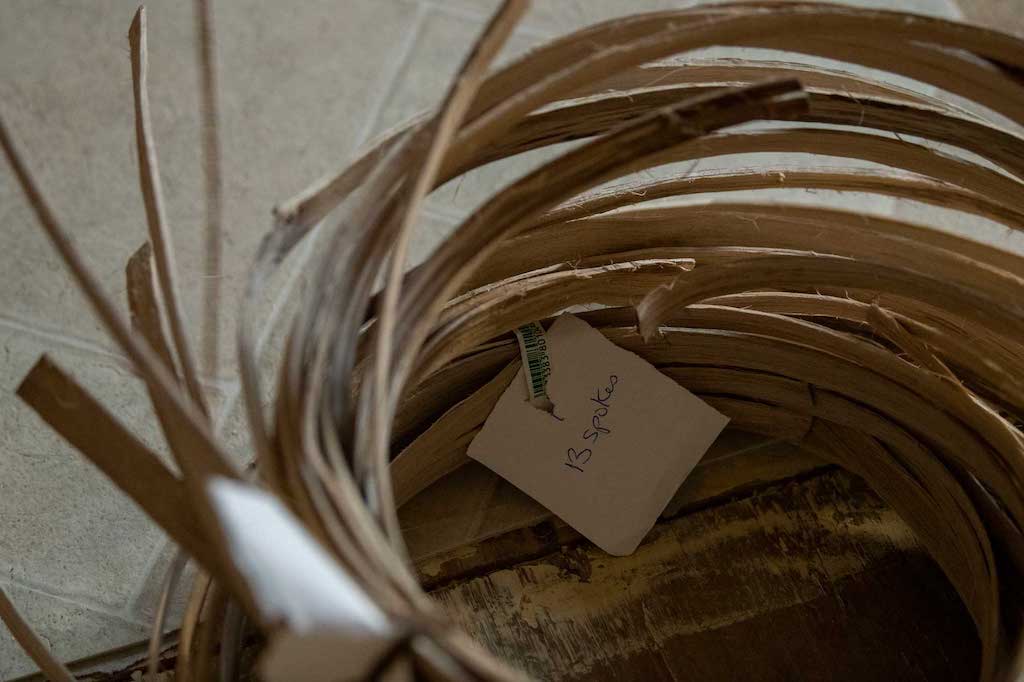
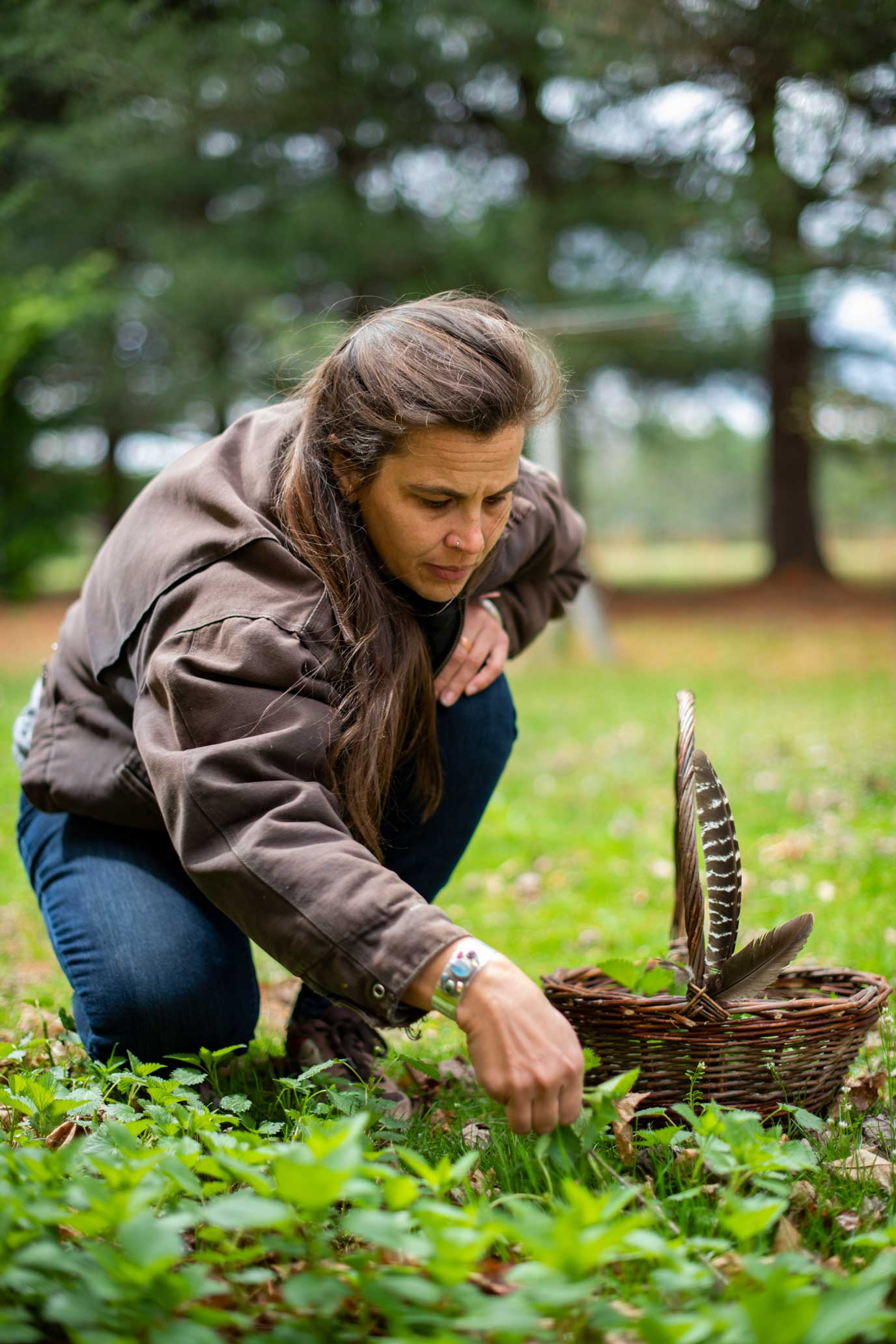
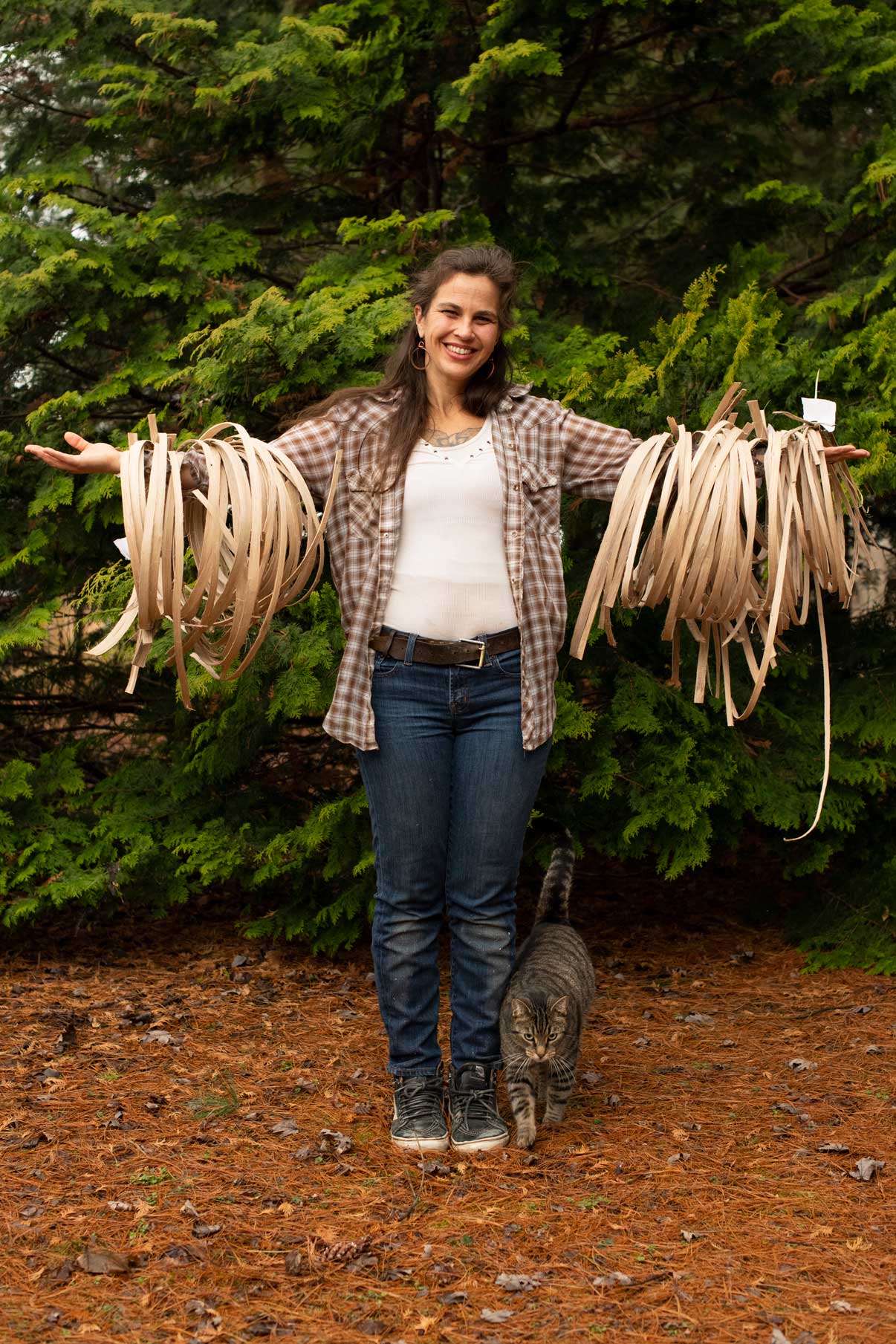
Since a young age, Quinn has been enthralled with crafting. It started with beading, but soon after evolved into a deeper passion. Now, Quinn works with an assortment of resources including a vast array of plants, timber, animal parts, and upcycled material from the community around her.
Throughout her work, Quinn makes a point to keep her resources sustainably collected. By doing this, she can sell her goods and services knowing there is no, what she calls, “Soul Tax.” According to Quinn’s website, a Soul Tax is “a spiritual tax that is put into the cosmos when an object is created by unfair labor, unethically collected, is processed with toxic chemicals, or if a seller is dishonest about how a product was obtained and the manner in which it was treated and cared for.”
This idea of having no Soul Tax has always been a core aspect of Quinn’s work. She wants to be sure that her work is not detrimental to the environment around her, but instead helps people realize how they can live in a healthy relationship with nature.
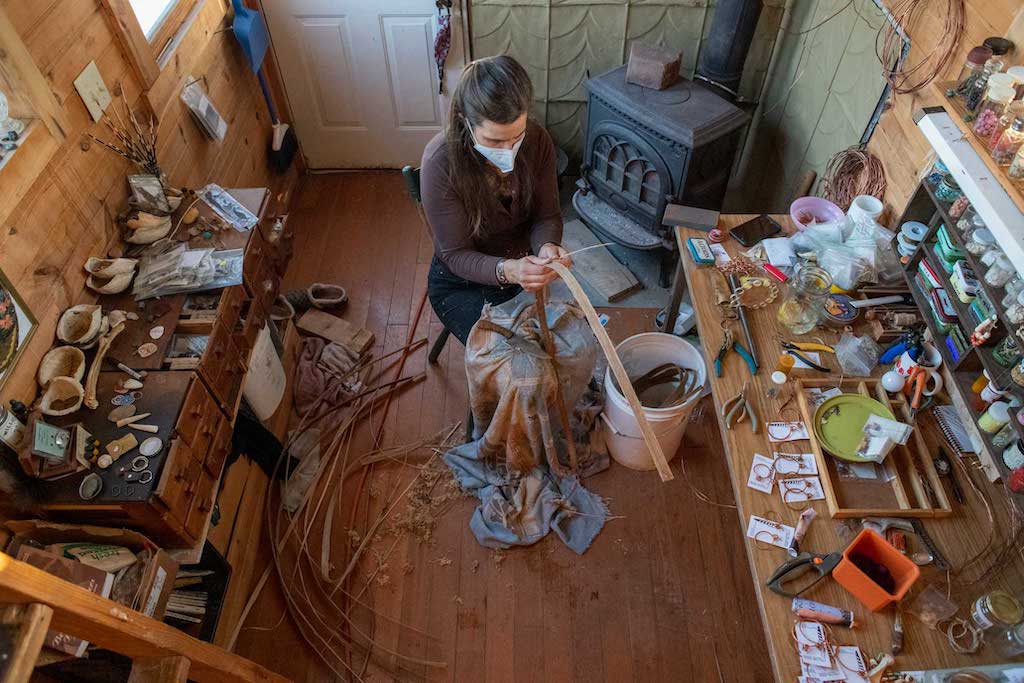
While Quinn specializes in many traditional Appalachian crafts, she did not always have such a deep passion for her community. Quinn was born in Columbus, Ohio, but her family moved back when she was about 5. While life in Athens went well for her and her family initially, things changed as she aged.
It started with her hatred for school and grew from there.
“I just had to get out,” she says. “I saw intense classism in the Athens city school system that disgusted me. I saw homophobia…I just, I was really bothered by it. And I didn't want to be there at all. And I didn't want what they were selling, basically, you know? They're like, you have to get a good education and go to college so that you can be like us. And I was just like, no, I don't want to be that.”
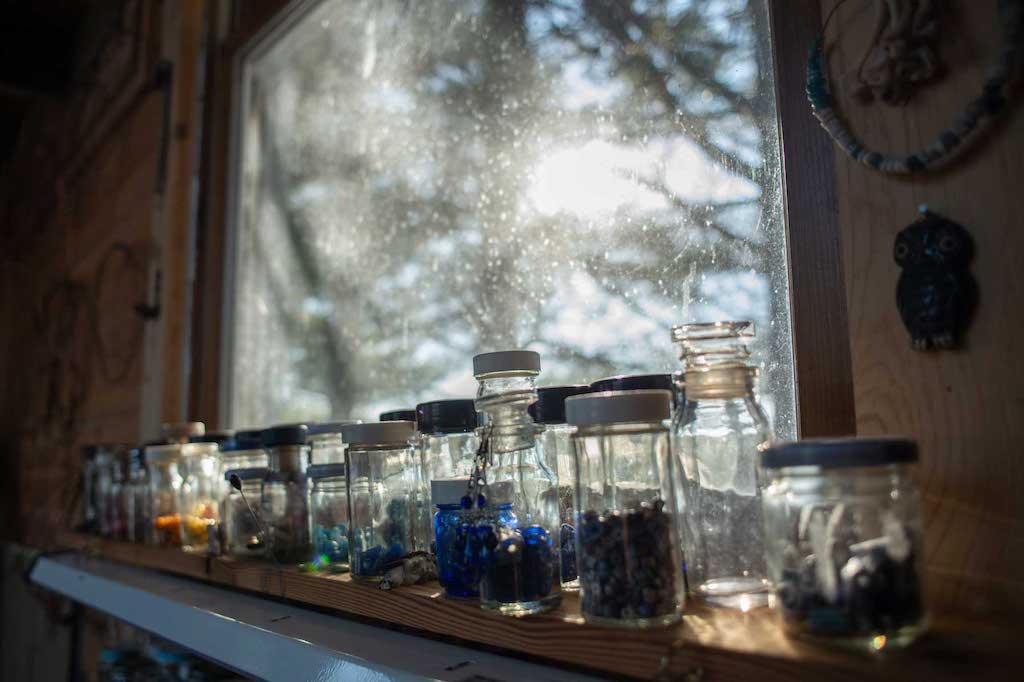
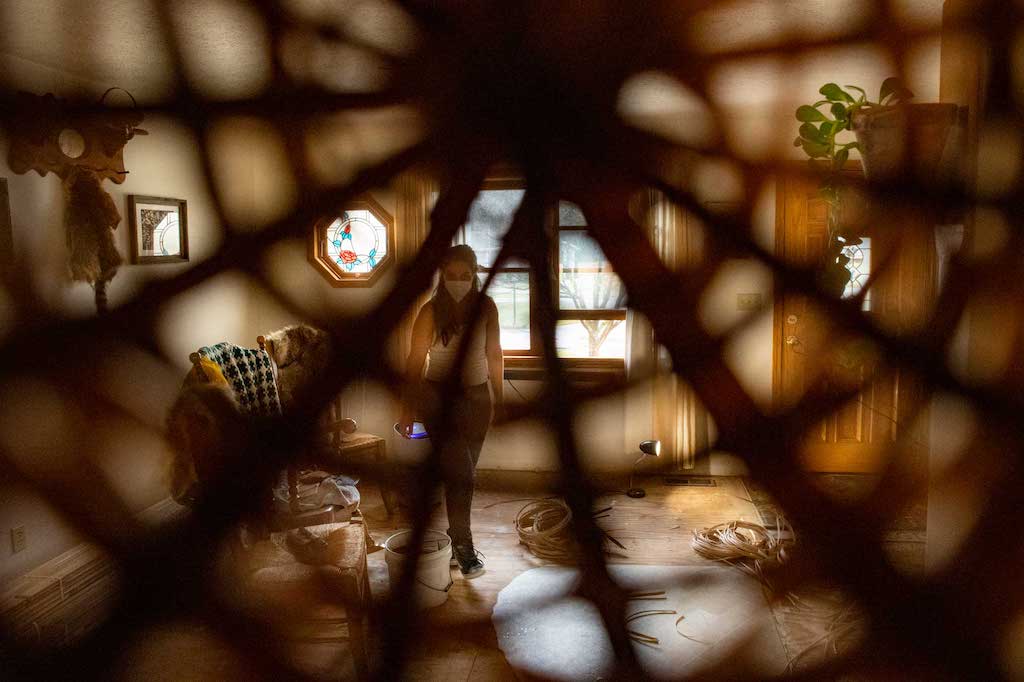
“I just wanted to get as far away from here as I possibly could. And I just hitchhiked and rode trains, and then ended up being part of a movement to end old growth logging on National Forest,” she says. “I started traveling when I was 18. And I didn't stop traveling until I was 34.”
It wasn’t until Quinn came back for her sister’s wedding that she considered moving back to Appalachia.
“I had at that point, realized that I felt the most at home in the Appalachian region. I realized that but, I didn't want to live here. I mean, we were taught not want to live here. You're just grow up and get out,”
While she was in town, her grandfather became sick, and she started to care for him.
“So, I stayed, and then I just kept staying and I was tired of moving. And it was in that process of being like stuck here, that I started realizing that maybe this is where I should be,” she says.
“I also didn't have any money to move anywhere else,” she adds with a laugh.
While Quinn ended up returning to the place she felt most comfortable, she reflects back on her time away as a saving grace.
“My generation was kind of the first generation of the opioid crisis,” she says. “The year that I graduated from high school, the three years after that, I was getting regular calls of people ODing. It was pretty brutal. And I don't think I knew it, but I think leaving was like a really good tactic of avoiding that.”
Now that Quinn has returned and decided to stay, she hopes to help revitalize the community she now loves. She wants to see folk schools established in the area and offer more classes to teach people about the abundance of resources around them and how they can be used.
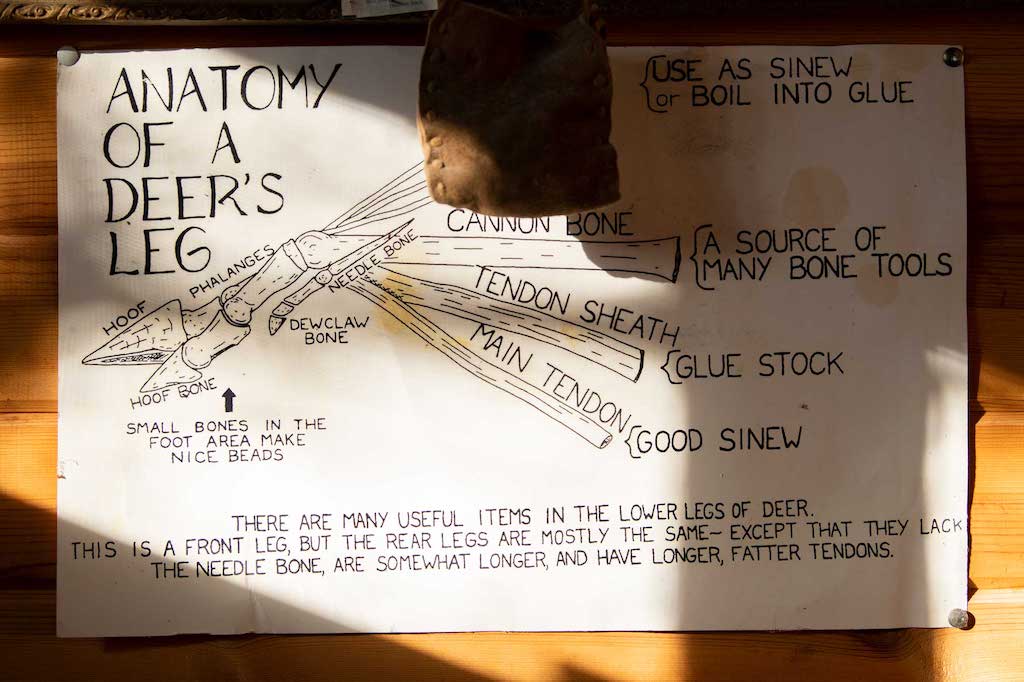
“I've found that being in nature and working with my hands have been two things that have really helped me heal in my life. And I believe that it has the power to help other people heal. So, I hope to grow my business in a way that can promote that more.”
To learn more about Quinn and her life as an Appalachian folk artist, listen to the audio story below.
The history of Ohio is incredibly vast and complex. Millions of people have passed through this area and left their own unique mark on the landscape, changing the state forever.
Read MoreRick Vest, a semi-retired farmer, has been trapping in this area for years and his developed an eye for things that are often too minute for many to notice.
Read More18,000 years ago, glaciers reshaped the Ohio landscape. These colossal walls of ice moved painstakingly slowly, flattening everything in their path. At the base of the ice lay a mountain of land that grew with every inch it moved.
Read More